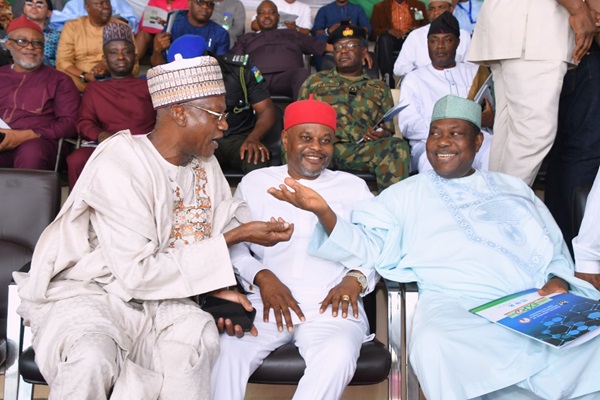
The ascent of global economic powerhouses is not coincidental. Science, technology and innovation (STI) have been their driving force, propelling nations and businesses towards economic prosperity. From fostering industrial growth to unlocking sustainable development, the undeniable power of innovation is clear. Nations that prioritise investments in STI reap the benefits of continuous productivity growth and equitable industrial development. Prioritising STI is undeniably the key to unlocking sustainable prosperity, a path we must embrace for our future.
Acknowledging the significance of STI in national and economic development, particularly through the promotion of local technologies, former President Muhammadu Buhari signed Executive Order No. 5 (“EO5”) on February 2, 2018. This order directed all ministries, departments and agencies (MDAs) of the government to involve indigenous professionals in the planning, design, and execution of national security projects and to maximise in-country capacity in all contracts and transactions involving science, engineering and technology components.
In alignment with this directive, President Bola Tinubu, in his ‘Renewed Hope’ agenda, reinforced EO5’s objectives. This agenda aims to harness domestic talents and develop indigenous capacity in science and engineering to promote the technological innovation necessary for driving national competitiveness, productivity and economic activities, thereby enhancing the achievement of the nation’s development goals across all sectors of the economy.
Emphasising the importance of EO5 during the recent 8th Technology and Innovation Expo 2024 in Abuja, themed “STI: Solution to National Economic Challenges,” President Tinubu reiterated that with the ‘Renewed Hope’ agenda, innovation, science and technology are crucial tools for modern socio-economic advancement and will continue to receive support in promoting and utilising innovations and inventions through local research & development to enhance indigenous capacity and capability in line with the provisions of Presidential Executive Order No. 5 (2018). This order undoubtedly places Nigerian professionals and manufacturers at the core of the Nigerian economy, serving as a catalyst for a new economic era driven by innovation, transforming our economy from consumption to production.
He reiterated the importance of EO5 for STI development, with Tinubu, represented by the Secretary to the Government of the Federation, Sen. George Akume stating that it is a driving force for realising the nation’s socio-economic progress targets. Due to its potential for job creation, the budgetary allocation to this sector has been increased to swiftly uplift the populace from poverty, thereby mitigating unrest across the country.
To translate words into action, upon assuming office as President, a memorandum of understanding (MOU) was signed with the Republic of Cuba to enhance collaboration on science and technology between the two countries. The areas of cooperation under the agreement include biotechnology, scientific research and innovation, technological development, human resource development, specialist exchanges in science and technology, as well as technology transfer for development purposes.
The President also announced that the government will enhance the technology and innovation centres established by the Federal Government across the country’s six geopolitical zones to facilitate the transition to a production-based economy. These centres will act as hubs to bring together all stakeholders in the science, technology and innovation ecosystem to strategise the utilisation of mineral and human resources for global development.
“I am delighted with the inventions and innovations showcased today by our researchers, inventors and innovators. The government is committed to providing the necessary support within the confines of the law to facilitate the commercialization of these products, goods, and services,” he added.
In his earlier remarks, the Minister of Science, Technology and Innovation (STI), Chief Uche Nnaji highlighted the significant progress made by the ministry to fulfill its mandate, including guiding technological development, enhancing research and development, formulating policies, overseeing and promoting all aspects of the STI ecosystem in the country. The ministry recently launched the approved National Policy on Welding and Welding Related Fields, aligning with the objectives of Presidential Executive Order No. 5 to promote local content in the nation.
The minister emphasised that welding is the foundation of engineering and a cornerstone of industrialisation, being one of the largest employers and a critical component of the construction industry. The ministry’s initiatives demonstrate its commitment to harnessing the transformative power of STI for national economic growth and development. He urged the organised private sector (OPS) and investors to capitalise on these research outcomes, paving the way for wealth creation and employment opportunities for the vast population.
Similarly, Imo State governor, Hope Uzodimma lauded the Ministry of STI for its role in ensuring sustainable progress. He acknowledged the global trend towards embracing science and technology, underlining the importance for Nigeria to align with the new global order.
Uzodimma emphasised that agriculture, climate change and global food security stand to benefit significantly from the innovative application of science and technology. He urged the Ministry of STI to initiate programmes that capture the interest of young minds, starting from early education through tertiary institutions.


